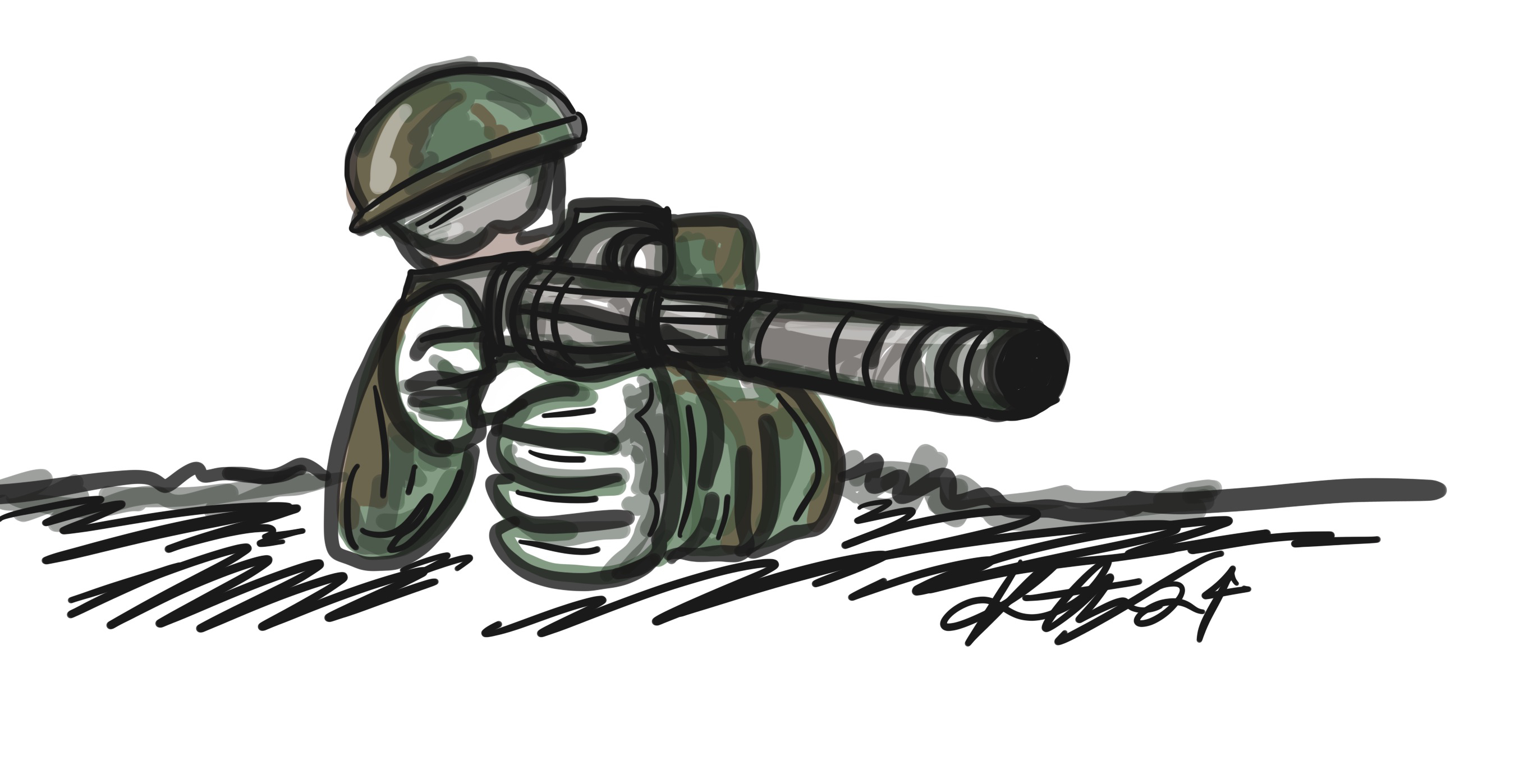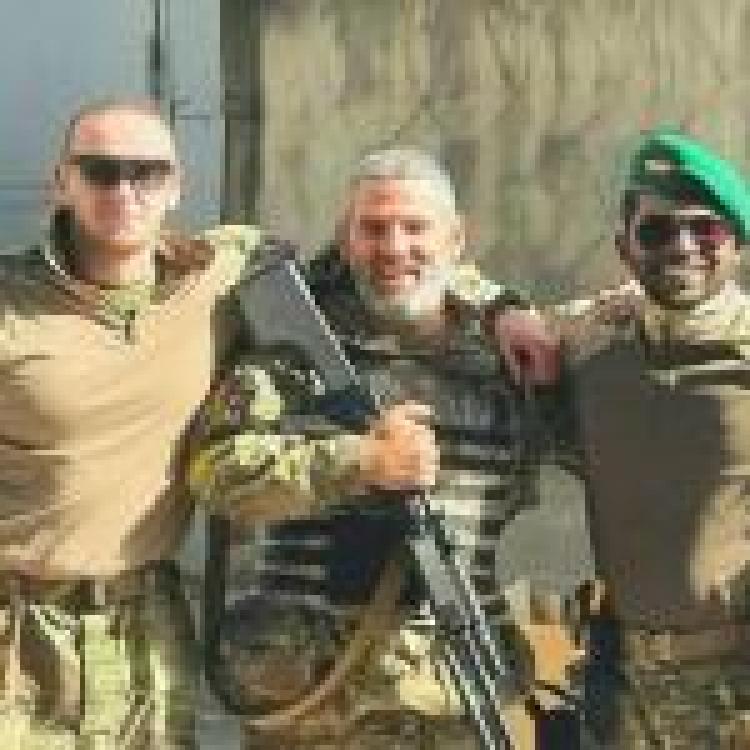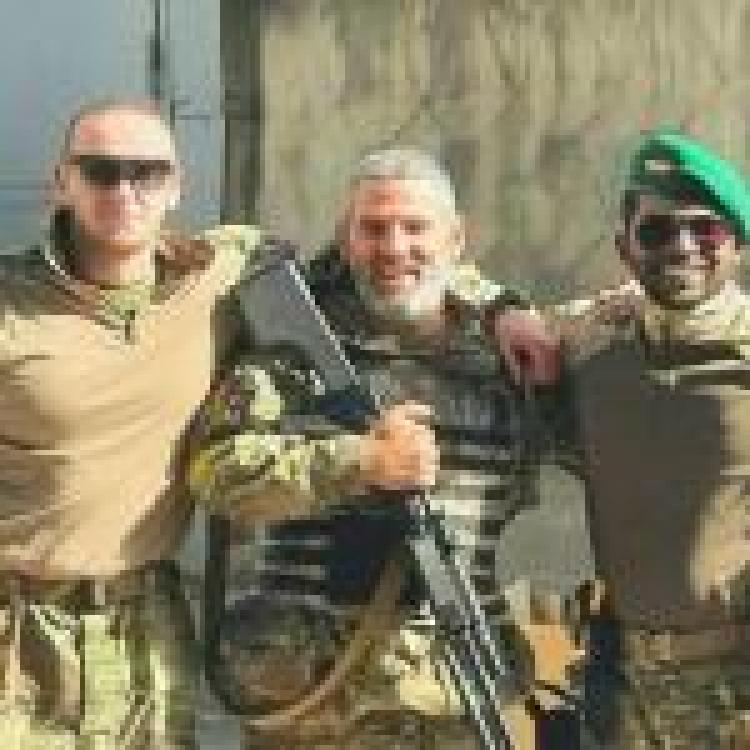
Illustration by Keera Ratnam / @wavesofcolour
Sri Lankan soldiers are currently fighting a fully-fledged war. This time it is thousands of miles from the Tamil homeland. Reports emerged this week that ‘hundreds’ of troops are currently serving with the Russian military, as Moscow continues its deadly offensive into Ukraine. Though some are fighting alongside the Ukrainians, it seems the vast majority are travelling to fight with Russia, lured with promises of earning a stable salary and even foreign citizenship. As Sri Lanka’s economic woes continue, its troops have effectively become a mercenary force. A military accused of war crimes is exporting soldiers to fight alongside another military accused of war crimes.
For individual soldiers, the island’s financial crisis has undoubtedly driven their decision to fight abroad. Colombo may claim that the tough times have passed, but the revelation that hundreds would rather risk their lives on the deadly Ukrainian front lines than stay on the island reveals the dire reality of the situation. The crisis is still raging.
The Sri Lankan state is not unaware that its soldiers are leaving either. Indeed, it even has some of the names of troops from the army, air force and navy who have left or are preparing to leave. But with hundreds already abroad, and perhaps the prospect of desperately needed foreign remittances, it seems few concrete steps have been taken to stop them.
Though Colombo may be unperturbed, the influx of Sri Lankan soldiers to Moscow does pose a bigger problem for Western states such as the UK and USA, who have sanctioned Russia and openly accused it of committing war crimes, yet continue to train Sri Lankan soldiers. Some of those same troops Western-trained troops may already be serving under Vladimir Putin.
This exporting of soldiers must, and can, be stopped. While fixing the economic crisis may ostensibly be a solution, it is neither simple nor permanent. Even if corruption and mismanagement were tackled and financial stability eventually achieved, the Sri Lankan state has clearly demonstrated its willingness to prioritise maintaining a massive armed force over economic growth - evidenced by how the defence budget continues to soar year on year. There would remain an unaccountable military with hundreds of thousands of Sri Lankan troops who have bombed hospitals and massacred civilians, occupying one of the most militarised places in the world, years after the end of any armed resistance. The conditions for instability would still exist. Soldiers would remain free to commit rights abuses in Kilinochchi or contribute to the bombing of Kyiv.
Instead, a stern message should be sent that ensures Sri Lankan soldiers do not leave to take part in war crimes abroad. That starts by holding them accountable for the war crimes they have committed on the island. Prosecuting troops in foreign courts through universal jurisdiction is one such powerful move that showcases to individuals any travel out of the island to participate in combat risks the long arm of the law reaching them, possibly even in transit. Moreover, it furthers accountability in Sri Lanka and around the world. Whether a senior commander or low-ranking soldier, no matter where they are, it should be made clear that mass atrocities will not go unpunished.
This must take place alongside concerted pressure to demilitarise entirely. The Sri Lankan state has little interest in reducing its numbers, despite it being been clear for years that the bloated military figures are entirely unsustainable, and given their chequred history, a constant source of instability and abuse. The ongoing occupation of the Tamil homeland, where the vast majority of the military is situated, suffers daily from this overwhelming militarisation. If the region is ever to prosper, and the island to ever find lasting peace, the tens of thousands of soldiers who occupy the North-East must be removed.
Finally, Western military relationships must be completely reconfigured. The Sri Lankan military has for decades been a rotten institution, which has tortured, raped and killed with impunity. The normalisation of ties - through sending military equipment, training its forces and allowing them to partake in UN peacekeeping missions - has allowed it to keep a veneer of reputability whilst remaining unchecked. Now, despite Western appeasement, Sri Lankan troops are aligning themselves with more malign forces around the world. Where could they go next? This trend can be halted only by demilitarising, delivering justice and dismantling these problematic institutions completely.


